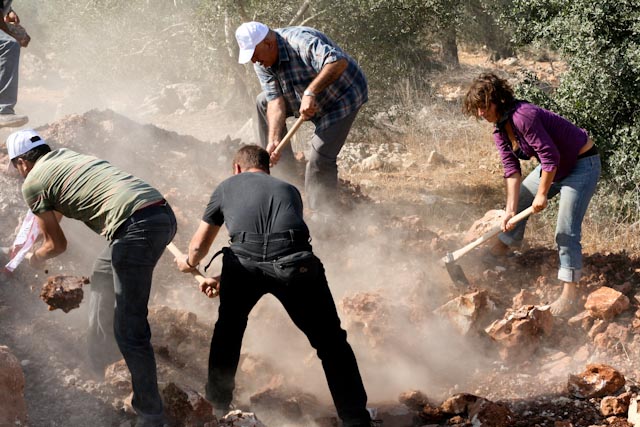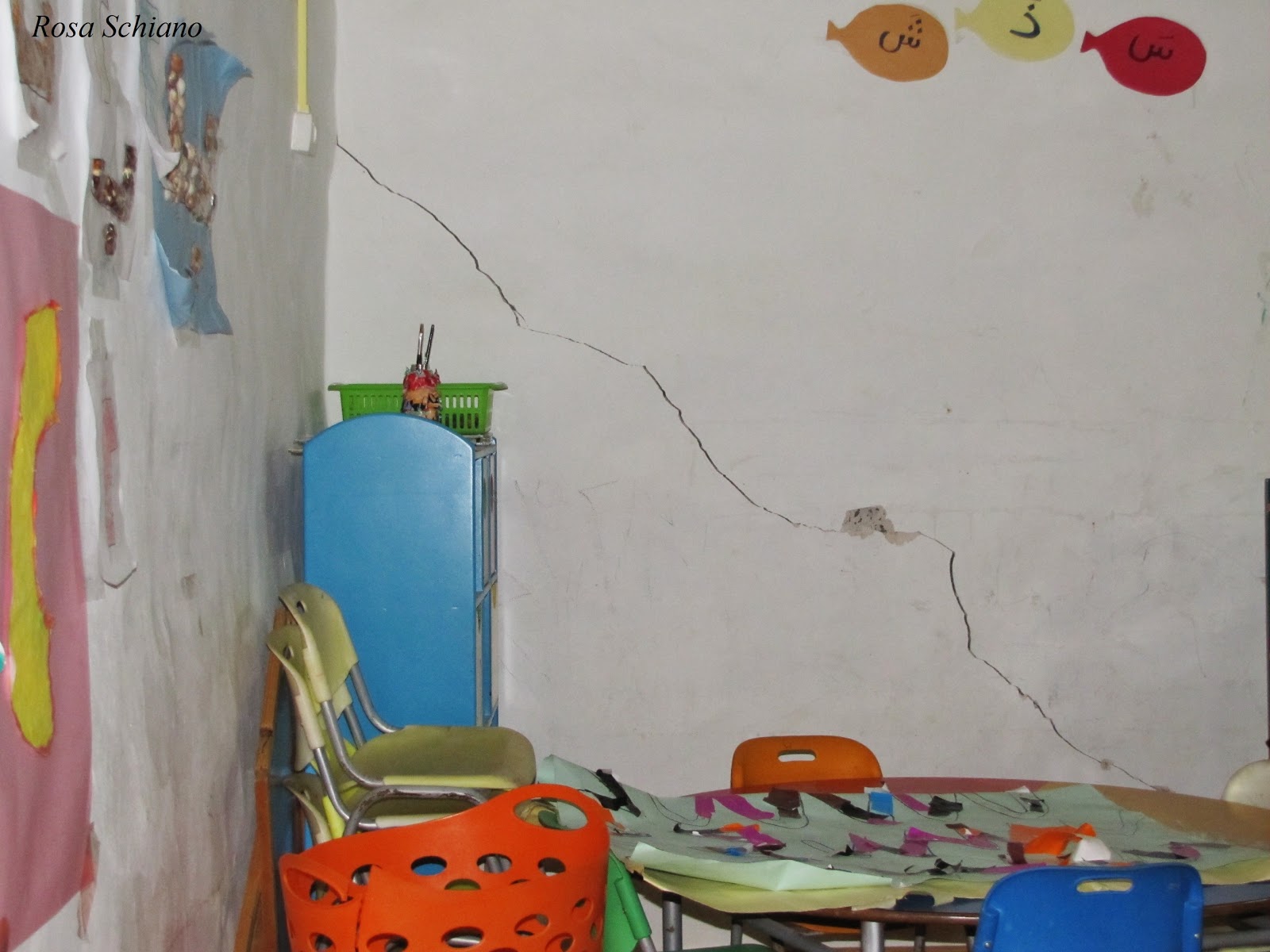Year: 2012
-
Citizens of Jama’in Remove Roadblock
By Viktor Ibrahim and Meri Verdaguer Photographs by Vicky Blackwell 16 October 2012 | International Solidarity Movement, West Bank About thirty citizens from Jama’in, accompanied by around 15 international solidarity activists commenced the first stage in the removal of a roadblock on an agricultural road near to the village, just south of Nablus. The earth…
-
New Israeli Air Raids on the Gaza Strip
16 October 2012 | International Solidarity Movement, Gaza The Israeli air force has conducted several air raids at night starting on the 12th of October, and ending on the morning of the 13th. “I felt a huge explosion at midnight while in a cafè with some friends. The first attack hit a Hamas military base…
-
Palestinian Activists Shut Down Apartheid Road
By Jacob Singh and Leila James 16 October 2012 | International Solidarity Movement, West Bank A group of Palestinians shut down an Israeli-only highway to Tel Aviv today in the West Bank. International activists supported the Palestinians at today’s peaceable action, which blocked Route 443 for approximately thirty minutes. Fifty Palestinian and roughly ten international…


